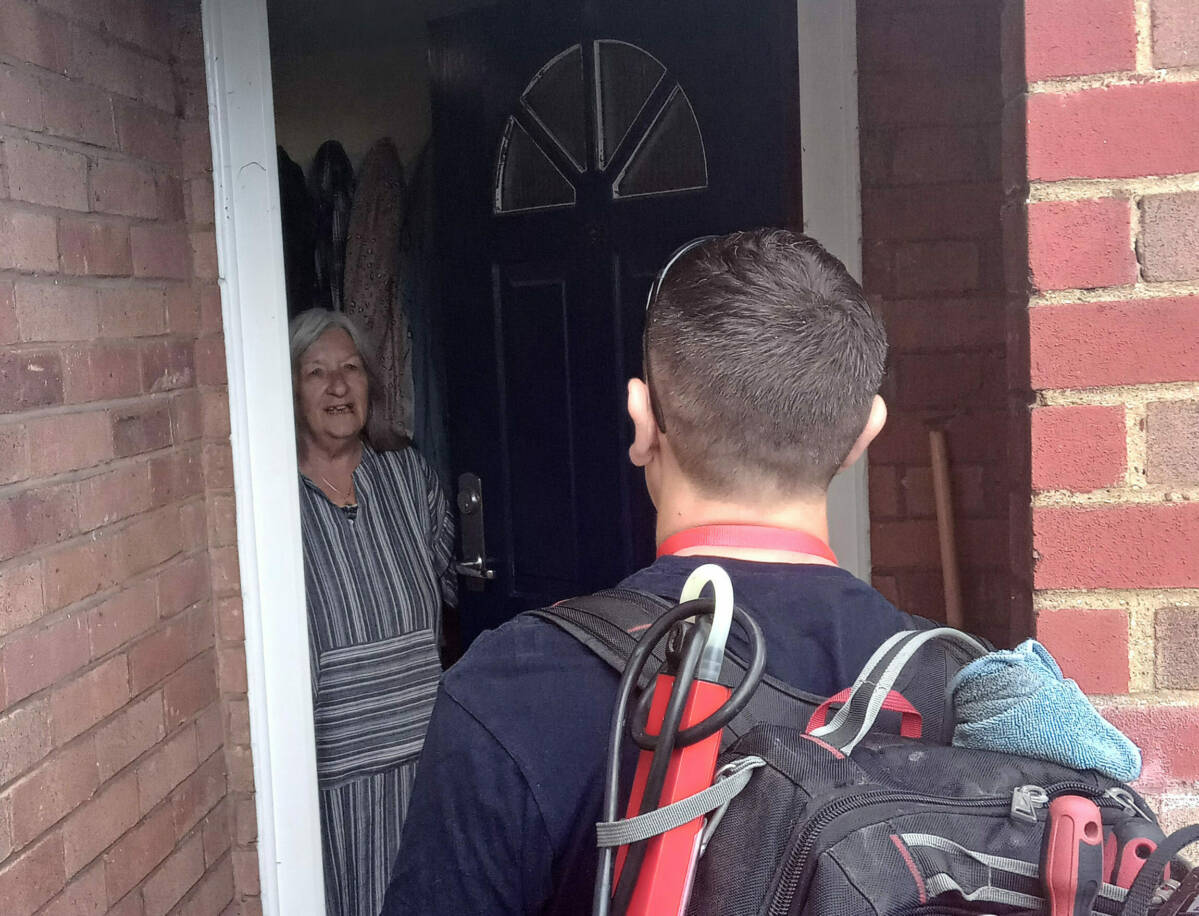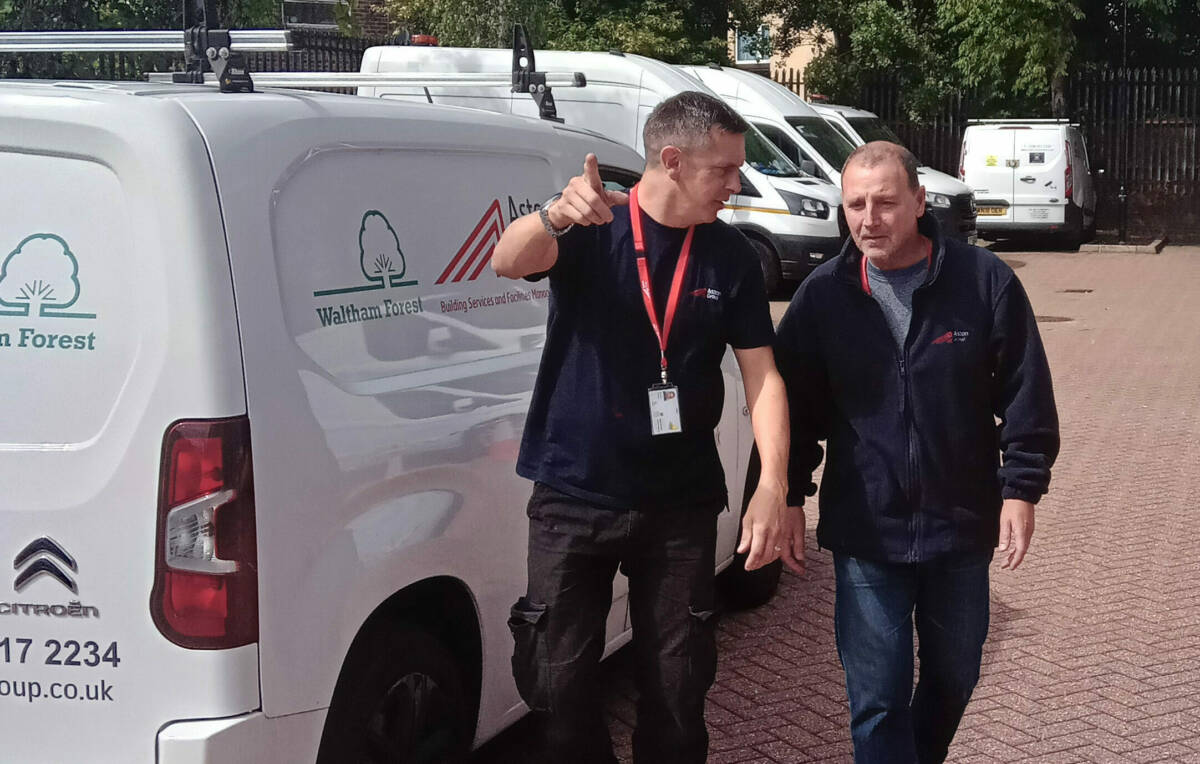Gas Safety Week 2023: Aston Group hit 12 year record of 100% Gas compliance
This Gas Safety Week, the London Borough of Waltham Forest is celebrating 12 consecutive years of 100% gas safety compliance across 8,119 properties, thanks to its partnership with Aston Group.

Maintaining gas safety is paramount to ensuring the safety of residents and properties. But achieving 100% gas safety compliance is no easy task, particularly when a large number of social housing properties are involved. Add in a pandemic, and it is fair to say that Waltham Forest Council and Aston Group’s gas engineers faced significant barriers to success.
However, both organisations are committed to maintaining the 100% safety record, working collaboratively to overcome any obstacles and keep full compliance.
Putting the right processes in place
The greatest challenge to maintaining gas safety compliance relates to resident communication. Explaining why gas safety checks need to happen – and when – ensures greater cooperation from tenants. Our efficient 10-month communication cycle makes this as smooth as possible.
Before the 10-month anniversary of a property’s last safety check, Aston Group sends a letter to Council residents giving them 28 days’ notice of their upcoming gas safety appointment.
If the engineer is unable to gain access at the allocated time, a 48-hour notice is issued, which asks tenants to get in touch and set up a new appointment. The majority of residents contact Aston Group at this stage. If this fails, we apply to Waltham Forest Council to submit a timely application to the courts to gain access.
By following this specific process, Aston Group ensures that all residents’ get a new gas safety certificate before their old one expires.

“It’s very difficult,” comments Aston Group Gas Manager Matt Johnson. “Tenants have to keep their appointments, so we have had to create a process that means we can gain entry and get things checked before their gas safety certificates expire. Sometimes tenants don’t understand why we need entry, or why gas safety is important. Explaining why we do it helps to make it easier to approach.”
“We understand it’s a real issue for some residents because they have to take time off work or arrange access for us. However, it’s a safety check, and we have to make sure we get into these dwellings to ensure resident wellbeing.”
Compliance challenges
Over the last 12 years, the Aston Group team has had to contend with plenty of change. This included new safety measures for Covid-19, which made residents reluctant to grant access to engineers.
Regulatory changes have included a new emphasis on the dangers of carbon monoxide, which meant that carbon monoxide alarms became mandatory for housing associations. This meant that the Aston Group team had to quickly adapt to a huge demand for alarms, which rapidly became in short supply.
“It was difficult to secure carbon monoxide alarms in the right quantities. When the Government released new carbon monoxide detector legislation in 2022, everyone was in the market to purchase alarms. We had to mobilise a whole new supply chain. It has not been an easy task to complete, but all council tenants now have a detector in place.”
There have also been changes regarding access to flues in voids. These flues now need to be visible, which meant that Aston Group needed to cut into sealed boxes in order to maintain Waltham Forest Council’s gas compliance.
Maintaining gas safety
Over the 12-year partnership, the role of clear, timely communication has been key.
As Aston Group Gas Engineer Andy Scott comments: “I find that most people are not aware of the importance of gas safety. A lot of tenants see it as an inconvenience. For example, if they have to take time off work to have a gas safety check carried out. By circulating gas safety information, people understand the reason for our visits.”
Knowing how to maintain gas safety is also vital. For this year’s Gas Safety Week, Aston Group’s engineers therefore have shared the following tips to help everyone stay safe:
- Have your gas appliances regularly serviced and checked every year. If you are renting, request a copy of the landlord’s current Gas Safety Record.
- Recognise the six signs of carbon monoxide poisoning: headaches, dizziness, breathlessness and nausea. In severe cases, it will lead to collapse and loss of consciousness.
- Regularly check gas appliances for signs they’re not working properly.
- Fit an audible and working carbon monoxide alarm.
- Keep vents and chimneys clear.
- Only use gas appliances for their intended purpose.
- Familiarise yourself with the emergency procedure should you smell or suspect gas.
- Encourage others to follow gas safety advice.

Reflecting on a 100% record
Given the big changes in gas safety and their inherent challenges, Jackie Bowditch is rightly pleased with our 12-year success story: “It’s a proud moment. It’s been really challenging, but when you have a team that wants to achieve, and has the motivation and drive to do so, it’s possible.”
The company’s strong partnership with Waltham Forest Council has also been essential to maintaining such a long period of 100% compliance. “We depend on each other,” adds Jackie. “There are a lot of people involved, but this is a true indication of a working partnership and what you can achieve as a result.”
“We depend on each other,” adds Jackie. “There are a lot of people involved, but this is a true indication of a working partnership and what you can achieve as a result.”
